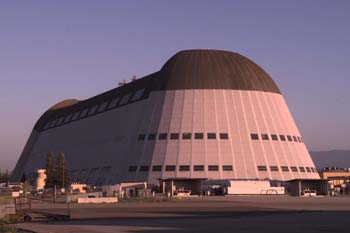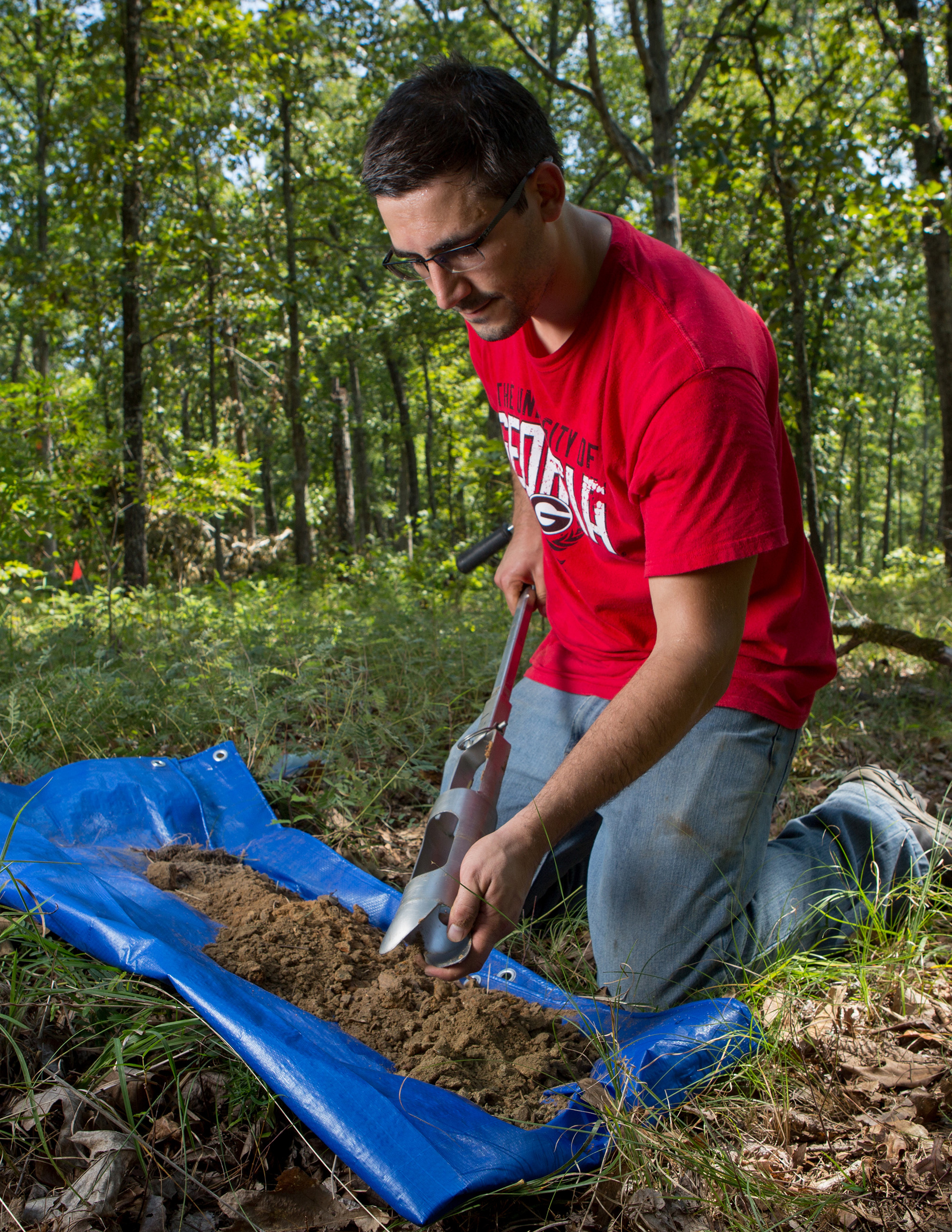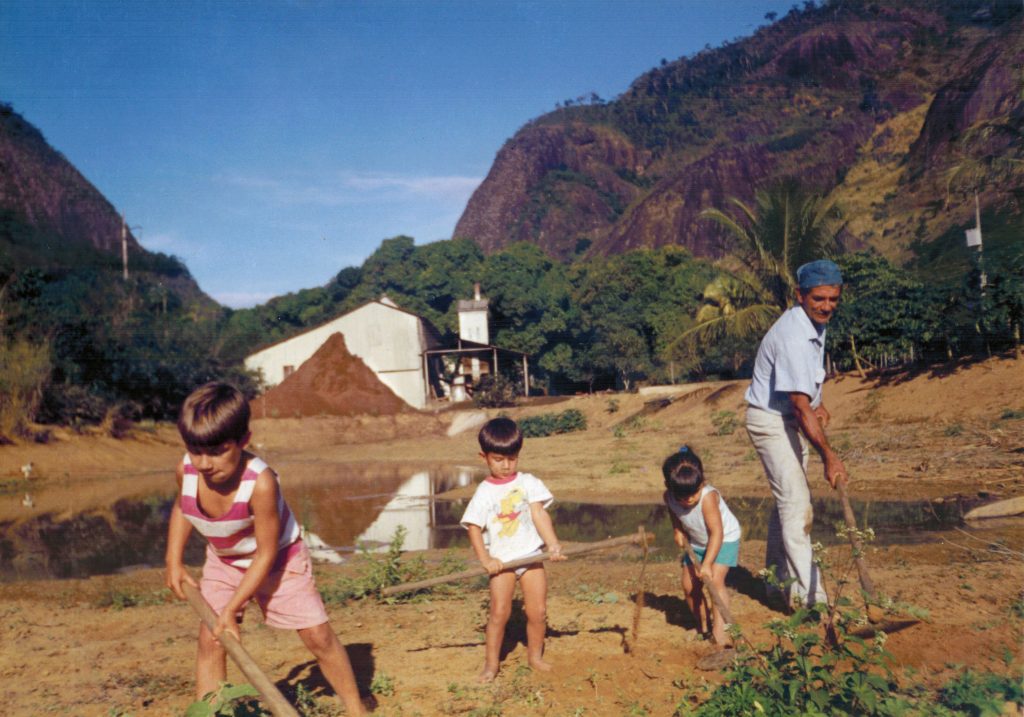Where Are They Now?
Diego Barcellos
By: Cynthia Adams | Photos By: Nancy Evelyn
Barcellos’s research proposal won his acceptance to Singularity University, a think tank and intensive residential program for outstanding talent, research and scholarship, based in California’s Silicon Valley. The 10 week event, hosted at NASA’s Ames Research Center, brings together an eclectic mix of billionaires, business gurus, inventors, scientists, students and visionaries for problem-solving projects.
Barcellos, a Brazilian-born agronomist in UGA’s doctoral program, is ready to put his ideas to work.
Diego Barcellos, our cover subject in the Winter 2017 edition of UGA Graduate, is a UGA doctoral student and soil scientist. From his earliest experiences on a working coffee farm in Brazil, Barcellos has been interested in agronomy and successful food production. Recently, his research proposal won Barcellos acceptance to attend the summer 2017 session of Singularity University from June 16-August 17.
Singularity University, based in California’s Silicon Valley, was founded in 2008 by Peter Diamandis and Ray Kurzweil at the NASA Research Park in California. It has been variously described as a think tank and an intensive residential program for outstanding talent, research and scholarship. According to the website, their purpose “is to educate, inspire, and empower leaders to apply exponential technologies to address humanity’s grand challenges.”

SINGULARITY UNIVERSITY opened its doors in June 2009 on the NASA Research Park campus with a nine-week graduate-level interdisciplinary curriculum designed to facilitate understanding, collaboration, and innovation across a broad range of carefully chosen scientific and technological disciplines whose developments are exponentially accelerating. With its strong focus on interdisciplinary learning, Singularity University is poised to foster the leaders who will create a uniquely creative and productive future world. (Photo Courtesy of www.parabolicarc.com)
Barcellos’s research concerns how iron minerals control soil carbons, a significant factor in grasping the impact of climate change and implications for global food production. He recently received a Dissertation Completion Award from the Graduate School.
As Barcellos expresses it, “I am excited to work on a team, to put an idea to work.” (His winning entry and stated goal can be viewed via the videos below.)
The Brazilian-born agronomist began at UGA’s Graduate School in January 2012. He entered the doctoral program in 2014.
Barcellos first learned about Singularity University in 2012, when he attended a UGA presentation by alumni Kausar Samli. (Samli was featured on the cover of the Graduate School magazine in winter 2011. He was chosen for the inaugural program.) The lecture resonated for the student, who identified with a global idea finding an international audience, and he was attracted to the interdisciplinary team-approach to solutions.
“My hair stood up when I heard about it,” says Barcellos. “I applied when my friend Erico Mattos applied.” Despite repeated interviews and disappointments, he was determined to gain admittance. He held firmly to a vision that, “if others could gain admission to SU, then I could.” It was such an important goal, he says, that one of his reasons for remaining at UGA, “was Singularity.”
Courtesy of Diego Barcellos. A New Age of Farming and Science: “I want to turn my career into a mixture of the highly technical and manager,” doctoral student Diego Barcellos explains. “I want to be a liaison between the farmer and the real world.” His interest began while coming of age on his family farm in Brazil. Left: Circa 1993 on the Barcellos farm, right to left: “My grandfather, Dionizio, my sister, Diana, and my cousin, Icaro. This photo means a lot to me. It shows my grandfather teaching us, since we were very little, how to work with the farm, to give importance to our job, and to be responsible with work.”
The doctoral student doggedly reapplied to Singularity University having decided “a rolling stone gathers no moss.” (Barcellos actually used the Brazilian equivalent of this saying—but the translation is the same.)
“I tried again in 2015 and 2016, again a finalist,” says Barcellos, who was selected numerous times as a finalist for the UGA-sponsored slots. Persistence paid, but not for another five years, as slots for graduate researchers are highly contested. In Kamli’s case, 1,200 applicants had vied for 50 places.
“The interviews were difficult,” says Barcellos. “I actually came to the 2016 interview for Singularity with a sprained ankle and on crutches!” He doggedly reapplied in March this year, this time via the direct application route, “and when I found out I was accepted, it was by email.” Grinning widely, he added, “I have so many dreams, and I think everyone has a life purpose. I feel mine is to use my knowledge to help others.”
The mission for Singularity University is to create a global community and employ “exponential technologies to tackle the world’s biggest challenges,” they state. The 10 week event, hosted at NASA’s Ames Research Center, brings together an eclectic mix of billionaires, business gurus, inventors, scientists, students and visionaries for problem-solving projects.

Their website states, “Our learning and innovation platform empowers individuals and organizations with the mindset, skill set, and network to build breakthrough solutions that leverage emerging technologies like artificial intelligence, robotics, and digital biology.” Singularity University faculty and students are chosen from a wide-ranging pool of talent. Although it is not restricted by age nor occupation, attendees commonly include entrepreneurs, corporate executives, development professionals, governmental employees, investors, and academics.
“We serve these audiences with a range of products to help them understand rapidly accelerating technologies and how to apply them to positively impact billions of people.”
As he moves to complete his doctoral research at UGA, Barcellos studies an aspect challenging sufficient food supplies. He evaluates the effects of iron oxides in soil carbon dynamics, an issue having direct impact upon food production.
Applicants to the summer long program at Singularity University must submit both ideas and preliminary information.
The video of Barcellos’s 2016 submission can be viewed at: https://vimeo.com/162087311. “This idea is good, but I am totally open to work with completely new ideas at SU this summer, to solve grand challenges related to agriculture, food production and hunger, and the environment,” says Barcellos.
Diego Baracello’s direct application to Singularity University (2017)









